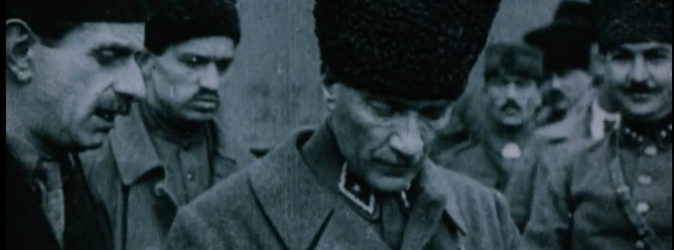Towards the Republic
This selection, consisting of nine archive films, does not actually contain films directly depicting the founding of the Turkish Republic. On the contrary, most of these films, which can be described as tourist films, were coincidentally found in Western European archives and show Istanbul and Izmir, starting from the 1910s. However, based on the information we also come across in cinema news bulletins, we can say, for example, that cinema audiences in the Netherlands followed the end of the Ottoman Empire, the War of Independence, and the developments in the early years of the Republic step by step. Isn’t it strange that while we don’t have a single news footage showing the founding of the Republic, the fact that İsmet Paşa’s visit to Istanbul to meet with the commanders of the occupying forces can still be watched in the Netherlands, whether a century ago or today?
Of course, it’s hard to know how these films were received by the audience of that time. We also don’t know the motivation of those who produced, filmed, and screened these images, from filmmakers to cinema owners. Still it’s clear that Istanbul was a place that attracted everyone’s attention. Otherwise, these films wouldn’t have been shot in such detail, colorized, and found audiences worldwide. Admittedly, Orient Express advertisements, travel books published by Western travelers, and the curiosity created by the Orientalism movement in general had a hand in stirring up such an interest. Although they may seem like moving postcards, tourist films reinforce their documentary value by unintentionally showing daily life with the details that enter the frame. So, we should ask; is there no hidden agenda behind the Istanbul girls in the documentary shot in 1926, who talk about women’s clothing in a folkloric style and unveil their veils while looking into the eyes of the Pathé cameraman?
Archive footage that has survived through all sorts of filters and reached our day allows us to feel the changes in the streets rather than reading about them in historical books.
Elif Rongen-Kaynakçı
